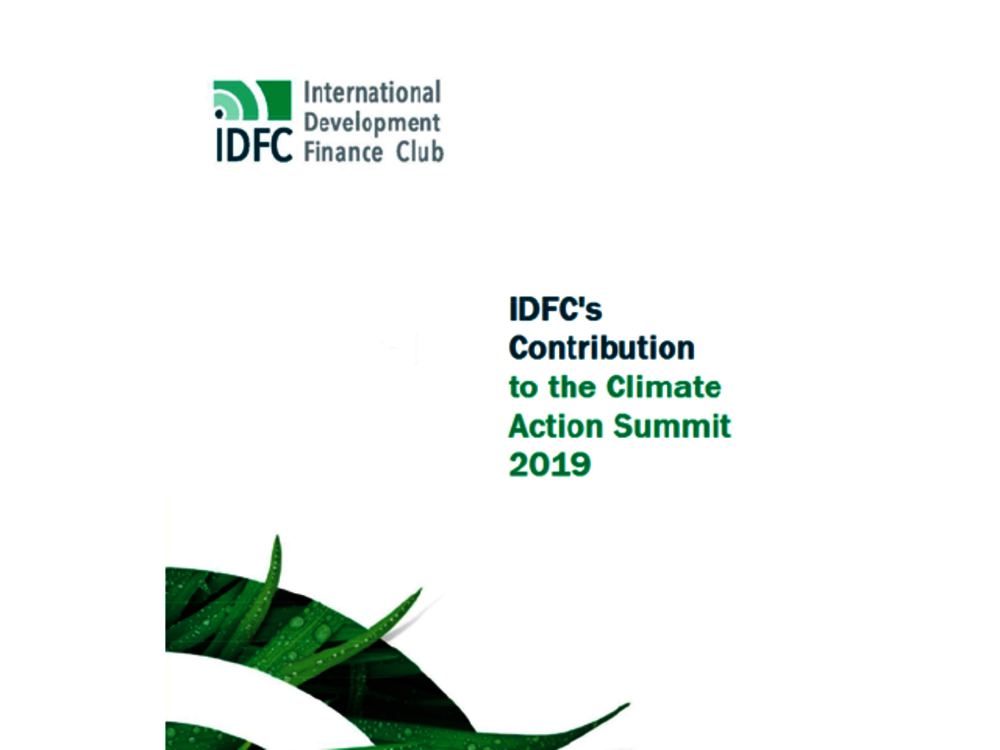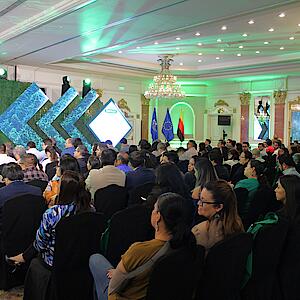CABEI contributes to sustainable green financing for the region

IDCF's 2019 Green Finance Mapping Report highlights CABEI's contribution to combating climate change effects.
Nueva York, September 24, 2019.- The International Development Finance Club (IDFC) presented the 2019 Green Finance Mapping Report, highlighting CABEI's contribution to combating the effects of climate change.
The IDFC is a leading group of 24 national and regional development banks throughout the world. IDFC members are aligned and work together to implement the Sustainable Development Goals and the agendas of the Paris Climate Agreement.
CABEI is a member of this association, and contributes to the Green Finance Mapping Report, which reflects the contributions that IDFC members provide to green and climate finance. The methodology for the representation and reporting of these contributions is continuously improved and aims to increase the efforts of members to track and report on each other's green financial flows.
CABEI Executive President Dr. Dante Mossi stated that, “CABEI recognizes that the high impacts of climate change and climate variability in the Central American region represent a clear threat to its economic, social and environmental development. In this regard, the Bank is committed to continue supporting its member countries in the fight against adverse climate change effects."
Since 2016, CABEI is an Accredited Direct Access Entity of the Green Climate Fund (GCF) and has a fruitful relationship with such fund. The accreditation was granted without conditions, enabling CABEI to mobilize resources in all available GCF categories and windows. In October 2018, the GCF approved the first operation to CABEI for an amount of US$15.5 million in order to implement the “Productive Investment Initiative for Adaptation to Climate Change (CAMBio II).”
Sustainable finance
It is noteworthy that of total CABEI approvals in 2018, 25% generated some contribution to the effects of climate change; cumulatively, during the 2013-2018 period this percentage was 34%. In April 2019, the CABEI Board of Governors established the Zero Carbon Declaration, expressing its commitment to the adoption of specific measures to support climate change adaptation and mitigation.
Through this statement, the Bank adopted the following principles: i) Refrain from financing projects related to the exploration and extraction of coal and the generation of energy based on this source; ii) Actively participate together with other multilateral development institutions and agencies, among others, in the structuring and development of financial instruments aimed at or in support of climate change mitigation and prevention, while supporting the strengthening of low carbon economies, societies resistant to climate change, sustainable food production, clean energy generation and energy efficiency.



![[Translate to English:] [Translate to English:]](/fileadmin/_processed_/e/3/csm_WhatsApp_Image_2024-04-18_at_2.12.23_PM__2__590ef43ade.jpeg)
